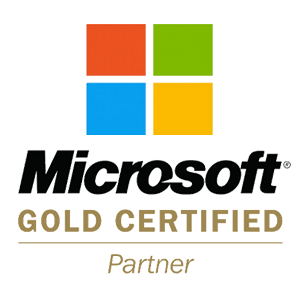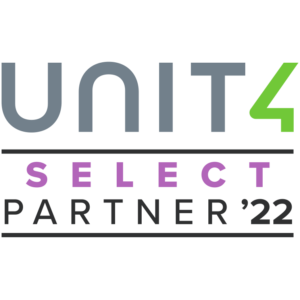As a foreign retail entity using Microsoft Dynamics AX; moving your retail business overseas can be a daunting task if you don’t have the proper resources to help guide you through the process. Especially when it comes to United States business compliance laws & regulations. You’ll need to understand which areas of compliance Microsoft Dynamics AX is expected to cover, and what other areas of compliance you may encounter. Well, luckily for you, we have compiled a list of the most common compliance elements that we encounter when assisting our non-US clients with their US retail operations set-up.
Sales and use taxes:
- Use taxes refer to taxes paid on purchases, where the entity is not charged tax and tax is required. This will occur when items are purchased for use by the entity and the vendor does not charge sales tax; the business entity is liable for a use tax in this scenario. Microsoft Dynamics AX supports identification and calculation of this sort of use tax.
- Sales taxes are taxes that the entity will charge their customers, when items sold are taxable. Microsoft Dynamics AX can be set up to calculate these state/ city/ local jurisdictional taxes and to report on these liabilities.
Item import and export duties: These are taxes and fees related to importing products into the US and exporting products from the US. Most often, these fees are calculated and assessed by the freight company transporting items into and out of the country and remitted by the US entity to the freight company.
Payroll tax withholding and payroll taxes: In the US, the payment of wages to employees generates two types of taxes: (1) taxes withheld from the employee’s wages and submitted to the government on behalf of the employee and (2) taxes the employer pays the government over and above wages. In addition, at year end, reports of taxes withheld and paid must be filed both with the employee and with governmental authorities. These taxes and reports include the following:
- Withholding taxes:
- Federal income tax, social security tax and Medicare (IRS Form 941)
- State income tax (for each state where wages are paid to an employee who is a resident of that state)
- Local/ city income tax (this is less common, but for some cities such as New York City, there are local income taxes as well, which must be withheld when paying wages to an employee who is a resident of that locality).
- Payroll taxes:
- Employer portion of social security and Medicare tax (Form 941)
- Federal unemployment (Form 940)
- State unemployment
- Local/ city payroll taxes (less common, but in a few jurisdictions)
- Reports due at year end:
- W-2 information returns, filed with the employee, US government and some states (some states use the federal filing and don’t require a separate filing)
- W-3 summary return for the above (government filings only)
If payroll is calculated using Microsoft Dynamics AX, reports to support these filings are produced by AX. If a payroll service is used for calculating payroll, the service often completes these tax filings.
Vendor reporting: The US government requires reporting of payments to vendors that are not exempt US legal entities. These payments are processed through accounts payable. Microsoft Dynamics AX supports a process to identify and process these payments. Related forms are 1096, 1099 and W-9.
Further, if an entity makes any payments to individuals that are non US based via accounts payable (Form 1042 Annual Withholding Tax Return for U.S. Source Income of Foreign Persons), Microsoft Dynamics AX supports a process to withhold the payments and to file that return.
Fixed assets: premise and property value: For office locations and stores, there are several reports and taxes for each geographic location the company has (including the headquarters). Note that these returns are not calculated by Microsoft Dynamics AX. The entity may choose to file this internally or outsource it.
- Local jurisdiction occupancy tax. This is a fee assessed for an occupancy permit, usually minor and may be combined in some jurisdictions with the local business license (below). If not combined with the business license, the entity will receive a bill for this permit from the locality. The first occupancy permit is issued as part of the construction process for a store (and is completed by the landlord for office buildings).
- Local business licenses. In most locations, these are filed annually with the local government. The fees charged are usually based upon revenue at the geographic location.
- Local real and personal property tax returns. These are taxes based upon the fixed assets of the company. Real property is land or buildings. Personal property is leasehold improvements, furnishings, fixtures, equipment, etc. An annual report of the depreciated value of the fixed assets is required to calculate the tax. This return is filed with the county or city that has jurisdiction where the business is located. After processing that return, the authority will bill the entity for property taxes based upon the valuations listed in that report.
Corporation licensing and income taxes: The US requires a corporation to file an annual return each year to the Secretary of State in the state where the corporation was formed and to remit a small fee to keep the corporation active. This filing and fee are often completed by the attorney for the company.
Additionally, based upon income or investment, there are many corporation federal, state and local income taxes; these are calculated and remitted by the company or an accounting firm on behalf of the company (which is usually a ‘CPA’ or Certified Public Accounting firm in the US). All corporation licensing and income taxes can be calculated and filed by professional firms on behalf of the entity.
If you have any questions or suggestions for additions to this document, please reach out to us. We are all interested in supporting a vibrant business community and in making entry to do business in the US an easier process.




